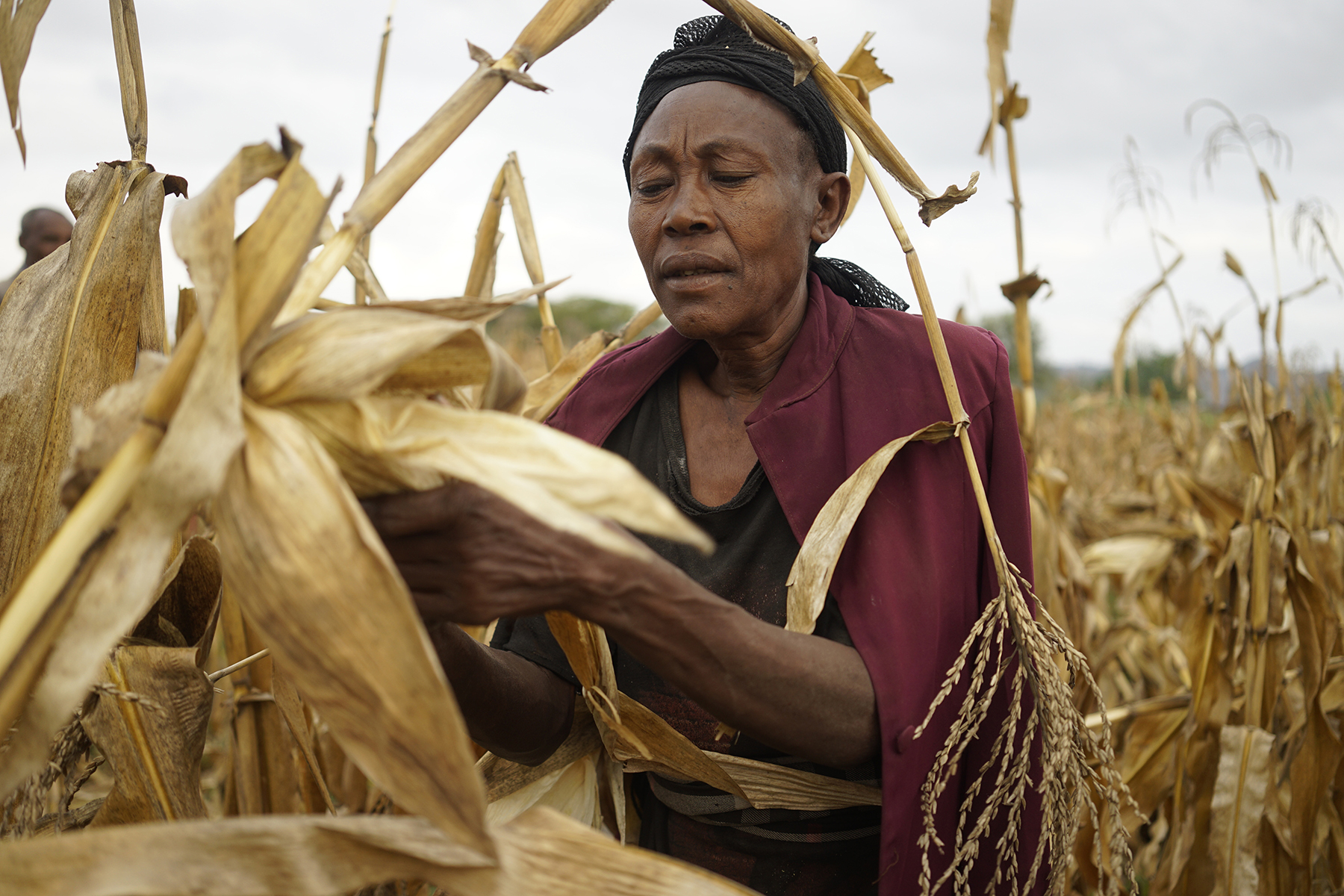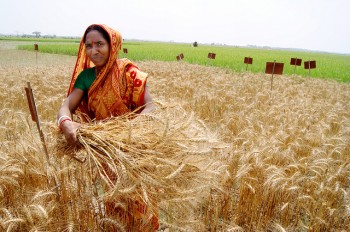Bill & Melinda Gates Foundation
Drought tolerant maize: Long-run science, investments, and partnerships pay off in Africa
 Climate adaptation and mitigation
Climate adaptation and mitigation
Before climate change became a hot topic, the U.N. Development Programme provided funding for a team of scientists in Mexico to find a better way to breed resilient maize for farmers in drought-prone tropical areas.
Amidst intense drought, investment in scientific research is key
 Climate adaptation and mitigation
Climate adaptation and mitigation
El Niño drought-related stress is triggering hunger and food insecurity. Investment in scientific research is key to combating such events.
Reviewing progress and impacts of two core maize projects as they wind up work in sub-Saharan Africa
 Climate adaptation and mitigation
Climate adaptation and mitigation
Cereal Systems Initiative for South Asia enters Phase III: focus on scalability and strategic partnerships
 Nutrition, health and food security
Nutrition, health and food security
Supporting sustainable and scalable changes in cereal systems in South Asia
 Climate adaptation and mitigation
Climate adaptation and mitigation
The rates of growth of staple crop yields in South Asia are insufficient to meet the projected demands in the region. With 40 percent of the world’s poor living in South Asia, the area composed of eastern India, Bangladesh and Nepal has the largest concentration of impoverished and food insecure people worldwide.
Yield gap analysis key to meeting future crop demand
 Nutrition, health and food security
Nutrition, health and food security
The Global Yield Gap Atlas (GYGA) can help identify where major crop yields are not increasing fast enough to meet demand on existing farmland, and how farmers might close those gaps.
Changing the pace of maize breeding in Africa through doubled-haploid technology
 Capacity development
Capacity development
Two words – accelerated breeding – are synonymous to doubled-haploid (DH) based maize breeding. This was the core message shared with 56 maize breeders from 10 African countries who recently participated in a two-day training workshop organized by CIMMYT’s Global Maize Program (GMP) in Nairobi, Kenya, from September 23–24, 2015. The breeders benefited from the knowledge and experience of resource persons from public and private institutions in France, Germany and USA who have dedicated years of research on the DH technology that is changing the pace of maize breeding.
Replacing gender myths and assumptions with knowledge
 Gender equality, youth and social inclusion
Gender equality, youth and social inclusion
If we are to be truly successful in improving the lives of farmers and consumers in the developing world, we need to base our interventions on the best evidence available.
Maize that packs a punch in face of adversity: unveiling new branded varieties for Africa
 Climate adaptation and mitigation
Climate adaptation and mitigation
Maize lethal necrosis poses serious threat to East Africa’s seed sector
 Capacity development
Capacity development
The International Conference on MLN Diagnostics and Management in Africa, held on 12-14 May 2015 in Nairobi, Kenya, is the second meeting CIMMYT has organized this year on maize lethal necrosis (MLN), coming soon after an MLN diagnostics and screening workshop held in March. This points up how important the disease is to the entire CIMMYT fraternity in Africa.
Sin in the seed: meeting of the minds to combat maize lethal necrosis
 Nutrition, health and food security
Nutrition, health and food security
Well-positioned for next phase, CSISA India plans for monsoon cropping season
 Climate adaptation and mitigation
Climate adaptation and mitigation
Project team gathers in Kathmandu to plan for the 2015 monsoon cropping season.

